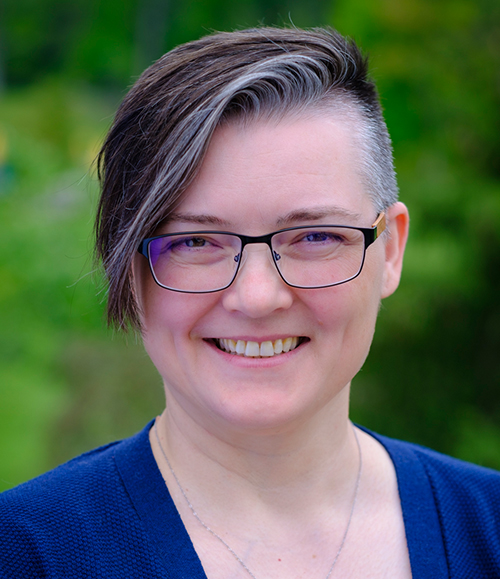Jennifer Carrera

- Associate Professor | Access, Opportunity, and Excellence Coordinator
- Department of Sociology
- PhD Sociology, University of Illinois at Urbana-Champaign, 2014
- 417A Berkey Hall
- 509 E. Circle Drive
- East Lansing, MI 48824
- 517-353-8124
- jcarrera@msu.edu
CURRICULUM VITAE
Jennifer CarreraBIOGRAPHY
Jennifer Carrera is an Associate Professor of Sociology at Michigan State University. She has a joint appointment between the Department of Sociology, the Environmental Science and Policy Program and AgBioResearch. Dr. Carrera’s research focuses on community driven questions about environmental and health conditions using Community-Based Participatory Research (CBPR) methods. From 2018-2021, Dr. Carrera was awarded a Transition to Independent Environmental Health Research Career Award (K01) from the National Institute of Environmental Health Sciences (NIEHS), National Institutes of Health (NIH), to work with community partners in Flint, Michigan to develop low-cost technologies for understanding environmental risks and protecting public health. She aims to establish evidence-based pathways for engaging with communities to enhance public health through the co-development of low-cost technologies to address unmet community scientific needs.CURRENT RESEARCH
Often little consideration is given to how communities produce their own information about proper ways of managing risks and opportunities. Through working with communities to develop their own research questions, collect, analyze, and interpret data community members may gain environmental health literacy as well as an interest in the governance of their resources. Dr. Carrera uses citizen science methods along with co-development of innovative, low-cost technologies for environmental monitoring to address issues of undone science in the context of environmentally vulnerable communities.PUBLICATIONS
Carrera, Jennifer S. and Phil Brown. “Toxicity, Health, and Environment.” Ed. Katharine Legun, Julie Keller, Michael Bell, and Michael Carolan. Cambridge Handbook of Environmental Sociology. Invited submission. In Press.
Carrera, Jennifer S., Kent Key, Sarah Bailey, Joseph A. Hamm, Courtney A. Cuthbertson, Yvonne Lewis, Susan J. Woolford, E. Hill DeLoney, Ella Greene-Moton, Kaneesha Wallace, DeWaun E. Robinson, Ismael Byers, Patricia Piechowski-Whitney, Luther Evans, Athena McKay, Don Vereen, Arlene Sparks, Karen Calhoun. 2019. Community Science as a Pathway for Resiliency in Response to a Public Health Crisis in Flint, Michigan. Social Sciences, 8(3): 94.
Ramirez-Andreotta, Monica, Abby Tapper, Diamond Clough, Jennifer S. Carrera, and Shana Sandhaus. 2019. Understanding the Intrinsic and Extrinsic Benefits and Challenges Associated with Community Gardening to Improve Environmental Public Health Prevention and Intervention.International Journal of Environmental Research and Public Health, 16(3): 494.
Carrera, Jennifer S. and Catherine Coleman Flowers. Sanitation Inequity and the Cumulative Effects of Racism in Colorblind Public Health Policies. Invited submission. 2018. American Journal of Economics and Sociology, 77(3-4): 941-966.
Carrera, Jennifer S., Phil Brown, Julia Brody, and Rachel Morello-Frosch. 2018. Research Altruism as Motivation for Participation in Environmental Health Research. Social Science and Medicine196: 175-181.
Gasteyer, Stephen P., Jennifer Lai, Brittany Tucker, Jennifer S. Carrera, and Julius Moss. 2016. Basics Inequality: Race and Access to Complete Plumbing Facilities in the USA. Du Bois Review, 13(2): 305-325.
ASSOCIATED PROGRAMS
- Environmental Science and Policy Program
- Center for Gender in Global Context (GenCen) Core Faculty Member

